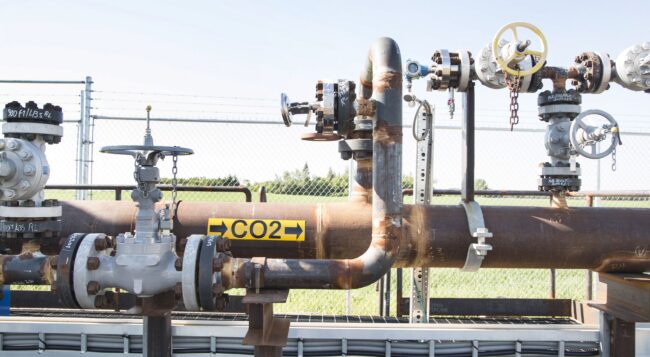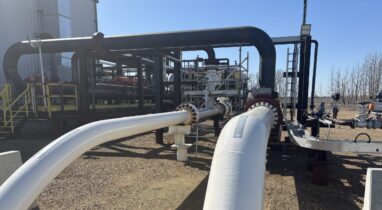Alberta could miss out on billions of dollars in low-carbon investment if the province doesn’t fix a major problem with its carbon market, says a new report released today by Clean Prosperity.
The Alberta carbon market is likely to face an oversupply of carbon credits before the end of the decade, which could further depress credit prices and undermine the case for investment in the province’s emerging low-carbon economy.
To prevent this from happening, the provincial government should make urgent changes to the Technology Innovation and Emissions Reduction (TIER) Regulation that governs the carbon credit market, Clean Prosperity’s report argues.
“Low-carbon projects, such as carbon capture and storage, often depend on revenues from selling carbon credits to justify their investments. The risk that Alberta carbon credits could drop in value may cause businesses to look elsewhere for low-carbon investment opportunities.”
Emma Dizon, report co-author and program manager for Western Canada at Clean Prosperity
Already, the risk of oversupply is depressing carbon credit prices. The gap between the market price for credits and the headline carbon price grew to a 40% discount this year, up from a 5% discount in 2020.
TIER is Canada’s largest carbon credit market, regulating more than half of Canada’s emissions from large industrial emitters. “If the carbon credit oversupply problem isn’t resolved, it could hurt Alberta’s and Canada’s emissions reduction targets and our prospects for low-carbon economic growth,” said Emma Dizon.
Alberta carbon credit market likely to be oversupplied in any decarbonization scenario
Under TIER, Alberta firms can earn carbon credits by reducing their emissions or by displacing emissions through activities like carbon capture and renewable energy generation. Industrial emitters buy those credits on the TIER carbon market to pay the carbon price on their excess emissions.
Emitters’ obligations increase annually as the price of carbon rises to $170 per tonne by 2030, and as the TIER system becomes more stringent. Clean Prosperity’s analysis shows that the stringency of the TIER system isn’t increasing fast enough for credit demand to stay ahead of supply, if firms begin decarbonizing at even a modest pace.
The report models three different decarbonization scenarios for Alberta and shows that credit oversupply will be a problem in every case.
If Alberta decarbonizes according to federal emissions targets and policies, or the province’s own Emissions Reduction and Energy Development Plan, Clean Prosperity’s modelling shows that the TIER market will be oversupplied by between 25 million and 27 million credits in 2030.
In a status quo scenario where industry maintains its current emission intensity while growing production, modelling shows that the TIER market will still enter oversupply if only half of Alberta’s 60 megatonnes of currently proposed carbon capture projects move ahead — and no other emissions reduction initiatives are implemented.
Recommendations to avoid credit oversupply and drive investment
In order to avoid an oversupply of carbon credits and encourage low-carbon investment, Clean Prosperity’s report makes four recommendations to the Alberta government:
- Review TIER stringency at least every two years to identify and address the risk of carbon credit oversupply before it becomes a problem.
- Automatically adjust TIER stringency based on market conditions, so that demand for carbon credits stays ahead of supply.
- Increase the transparency of the TIER market by regularly publishing summary data about carbon credit transactions. Price transparency is critical for any well-functioning market.
- Guarantee the future value of carbon credits using carbon contracts. Carbon contracts will give firms the confidence to make big low-carbon investments today, knowing that their future carbon-credit revenue is guaranteed by the government.
Clean Prosperity’s new report Strengthening TIER for Alberta’s Low-Carbon Growth is an update to research first released in 2022.
Clean Prosperity is a Canadian climate policy organization that advocates for pragmatic solutions to reduce emissions and grow the economy.
Inquiries: media@cleanprosperity.ca
Photo credit: NrCan


